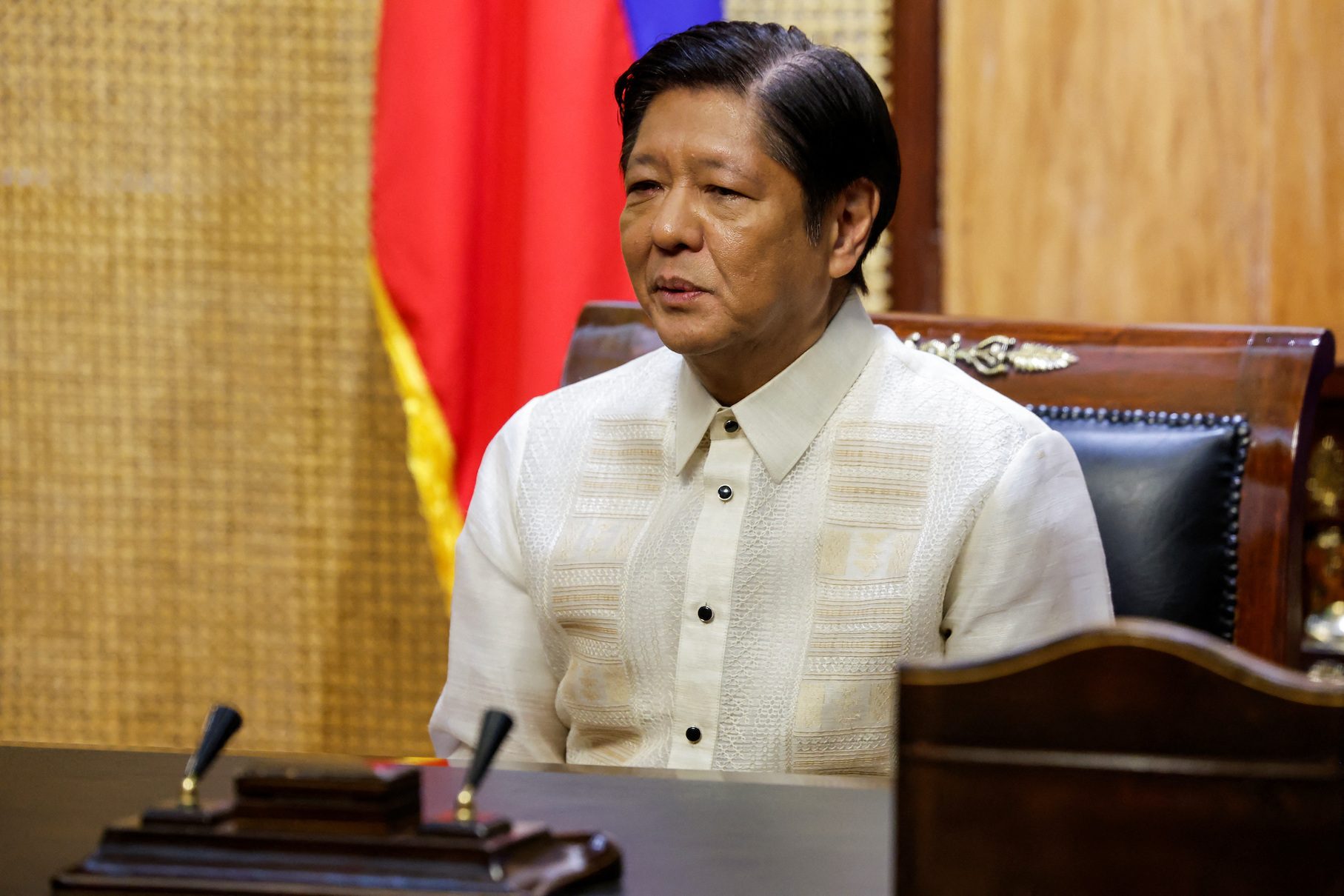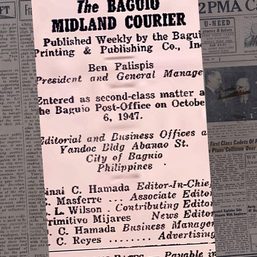SUMMARY
This is AI generated summarization, which may have errors. For context, always refer to the full article.

MANILA, Philippines – President Ferdinand Marcos Jr. sidestepped questions regarding his insistence not to say sorry for the atrocities committed during the Martial Law regime of his late father, the dictator Ferdinand E. Marcos.

During the Foreign Correspondents’ Association of the Philippines (FOCAP) presidential luncheon on Monday, April 15, a reporter asked Marcos, “Why have you resisted issuing an apology for the atrocities committed during Martial Law under your father’s rule, and will you continue doing so as president?”
“I don’t think it’s a duty for a president to be involved. That is a personal matter for the Marcos family,” he answered. “My role as president is more important right now than my role as a member of the Marcos family.”
The reporter, seemingly unsatisfied with the answer, threw a follow-up at Marcos, “So will you apologize as president of the Republic in behalf?”
“That seems highly contrived. Who is apologizing to whom?” Marcos replied, after which the subject has been dropped.
Marcos, in the past, dismissed the idea of saying sorry for the sins committed by his father.
“Will I say sorry for the thousands and thousands of kilometers [of roads] that were built? Will I say sorry for the agricultural policy that brought us to self-sufficiency in rice? Will I say sorry for the power generation? Will I say sorry for the highest literacy rate in Asia? What am I to say sorry about?” Marcos Jr. said in a 2015 interview.
The presidency of Marcos Sr. from 1965 to 1986 became among the darkest chapters of Philippine history.
His declaration of Martial Law in 1972 allowed him to stay in power beyond the two-term limit imposed by the 1935 Constitution.
That era was marked by widespread corruption in government, suppression of various freedoms, and human rights violations.
Amnesty International said 70,000 people were imprisoned, 34,000 were tortured, and 3,240 were killed from 1972 to 1981.
After the 1986 EDSA People Power Revolution booted out Marcos Sr. and left his family no choice but to go intoexile in Hawaii, the succeeding government formed a body tasked to go after their ill-gotten wealth.
As of 2021, the Presidential Commission on Good Government said P170 billion have been recovered but they are after P125 billion more.
The Marcos family, however, has successfully reintegrated themselves in Philippine politics after the Corazon Aquino government allowed them to return home in 1991 to face the legal challenges against them.
In 2022, Marcos Jr. won the presidential election in a landslide vote, with the help of what critics said was a well-oiled disinformation campaign to rehabilitate the family’s image. – Rappler.com
1 comment
How does this make you feel?
![[Closer Look] ‘Join Marcos, avert Duterte’ and the danger of expediency](https://www.rappler.com/tachyon/2024/06/TL-trillanes-duterte-expediency-june-29-2024.jpg?resize=257%2C257&crop_strategy=attention)

![[Newspoint] A Freedom Week joke](https://www.rappler.com/tachyon/2024/06/20240614-Filipino-Week-joke-1.jpg?resize=257%2C257&crop_strategy=attention)





![[OPINION] If it’s Tuesday it must be Belgium – travels make over the Marcos image](https://www.rappler.com/tachyon/2024/04/tl-travel-makeovers-marcos-image.jpg?resize=257%2C257&crop_strategy=attention)
![[OPINION] Raised on radio](https://www.rappler.com/tachyon/2024/04/raised-on-radio.jpg?resize=257%2C257&crop=396px%2C0px%2C720px%2C720px)
![[Just Saying] Marcos: A flat response, a missed opportunity](https://www.rappler.com/tachyon/2024/04/tl-marcos-flat-response-april-16-2024.jpg?resize=257%2C257&crop=277px%2C0px%2C720px%2C720px)

The Marcos family’s image rehabilitation continues. Remember what Cory did: “The Marcos family, however, has successfully reintegrated themselves in Philippine politics after the Corazon Aquino government allowed them to return home in 1991 to face the legal challenges against them.” She may be turning in her grave now.